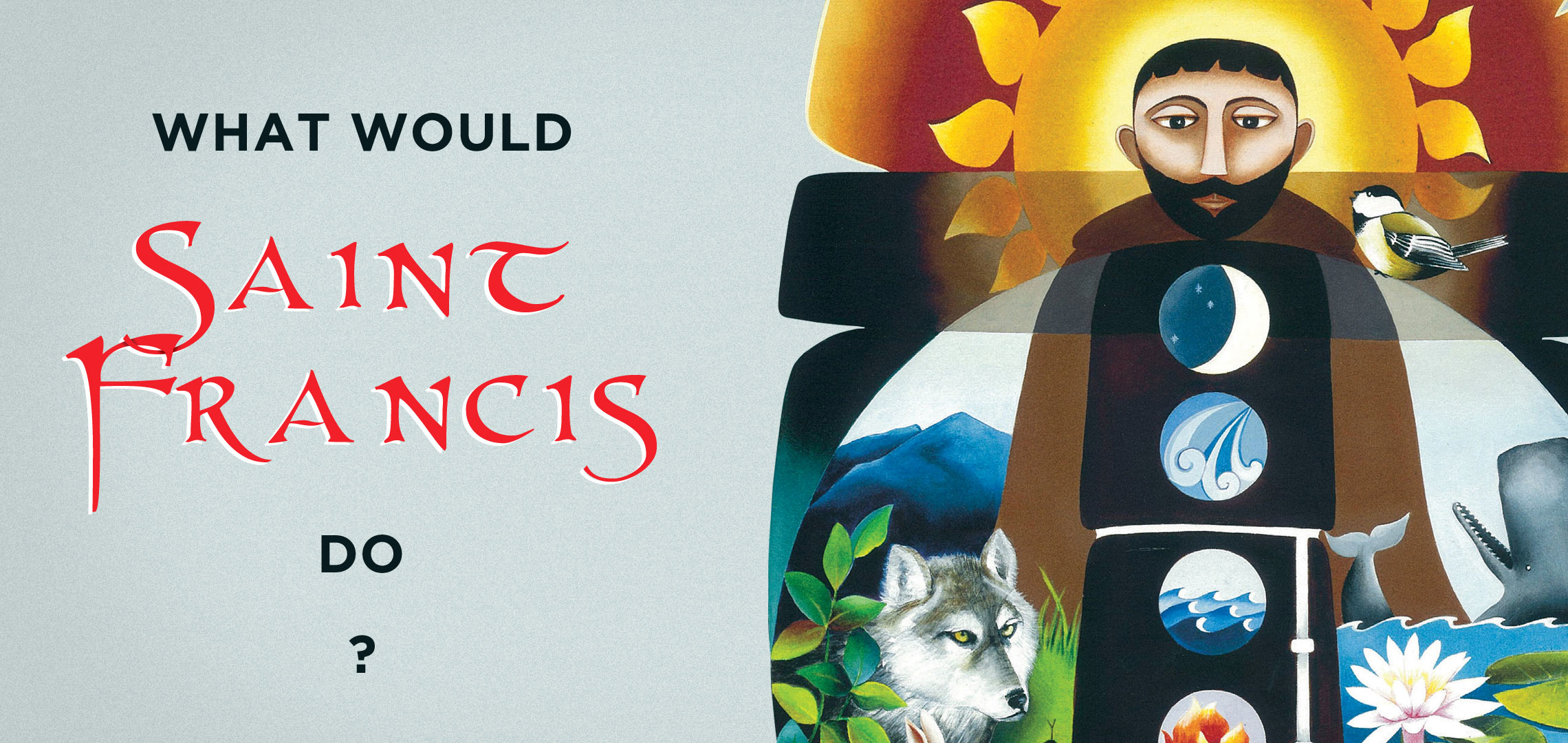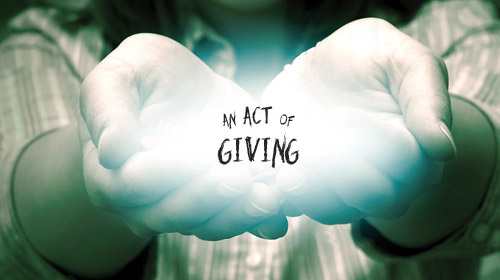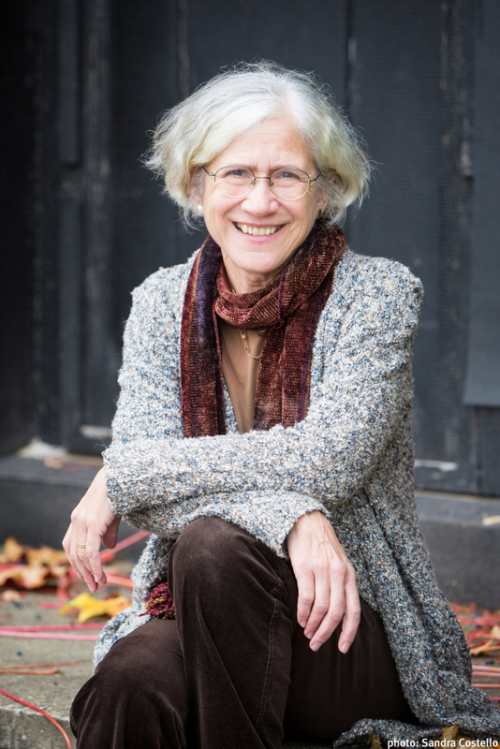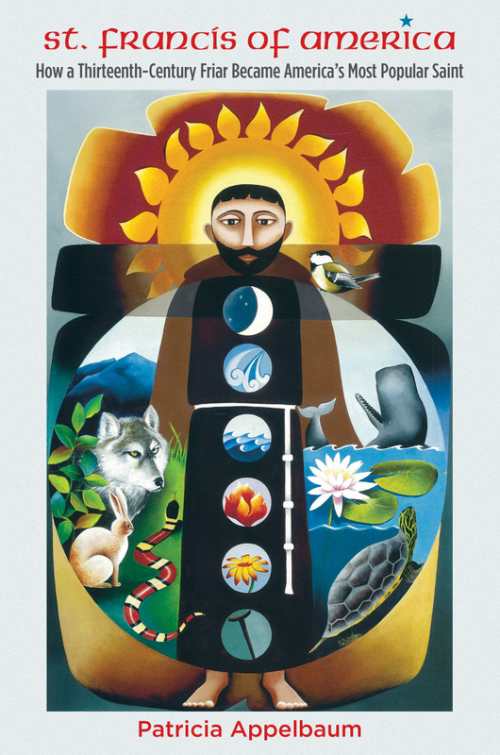Never Mind the Pope; What Would St. Francis Do?

Pope Francis recently took the United States by storm with a new message from the Vatican that the focus from now on will be on humility, compassion, environmental responsibility, and charity. It’s not that these things haven’t been stressed in varying degrees by previous popes, but this pope took his name from St. Francis, a thirteenth-century friar who, according to Patricia Appelbaum, is “America’s most popular saint” because … well, she wrote an entire book on why. Pope Francis is taking his marching orders from St. Francis of Assisi. So, how did a saint who lived a couple centuries before Europeans stumbled upon America become St. Francis of America? Below the news, Appelbaum explains a few of the reasons in our FTW interview, along with what she would do if the barefoot monk suddenly appeared on the street.
First, the News

Counting Indies: The headlines blared the “news” that e-book sales are flat and sales of print books are back. Huzzahs resounded from those who have a stake in the five multinational corporations that call themselves the publishing industry. Except none of it is true. Executive Editor Howard Lovy says: No, E-Book Sales Have Not Slipped and the Publishing Industry Knows it.

DIY Book Tour: Author Johanna DeBiase spent months planning a DIY book tour that entailed driving up the West Coast and visiting all the major cities to present ten readings from her debut novella. Here are a few things she did right and a few things she might do differently next time.

An Act of Giving: These eight distinct memoirs, featured in our Fall 2015 issue, range from dialogue-heavy narratives to short-story formats, but each is a sincere gift of life experience and a tale worth telling.
Embracing Wholeness: These eight books on spirituality, featured in our Fall 2015 issue, each explore wholeness from a different perspective.
Featured Reviews of the Week
A Perfect Life by Joel Spring. “For fans of 1984 comes a comedic new dystopian sci-fi story that makes Big Brother look benign.” Reviewed by Pallas Gates McCorquodale.
Roan: The Tales of Conor Archer: Volume 1 by E. R. Barr. “Barr excels at world-building, using existing Native American and Celtic lore to create a rich mythic heritage all his own.” Reviewed by Jill Allen.
Edgar Allan Poe: The Ambiguity of Death by Giuseppe Cafiero. “Cafiero’s biofiction is an outstanding literary achievement. It deserves to be read.” Reviewed by Amy O’Loughlin.
The Birthday Problem by Caren Gussoff. “Not your everyday nanobot zombie apocalypse tale, this book has character-driven depth.” Reviewed by Sonya Lovy.
This Earth You’ll Come Back To by Barbara Roether. “Roether has crafted a haunting, complete, and triumphant novel from one character’s perspective. It is a stellar and distinctive achievement.” Reviewed by Amy O’Loughlin.
Patricia Appelbaum
Have people given St. Francis qualities that he probably didn’t have in real life? Does every generation remake him in their own image?

Patricia Appelbaum
Let me take the second part first. Yes! But I’d prefer to say that people interpret Francis in response to the needs of their own times. There is lots of material to interpret—the early sources on Francis are very rich and are full of colorful stories. So people often pick and choose, or emphasize one quality over another, depending on their circumstances. For example, nineteenth-century Protestants, who were just beginning to discover Catholic history, admired the Protestant qualities they saw in Francis, like his preaching and his spiritual freedom. Gilded Age social critics, concerned about unbridled capitalism, emphasized his voluntary poverty and his love of humble people. Postmodernists see him as someone who can navigate instability and change.
Qualities he didn’t have? Again, this is often a matter of emphasis. But some interpretations do get pretty far-fetched. Many writers have speculated about a romantic attachment between Francis and Clare. Most of us have encountered an overly sentimentalized Francis, a “sticky, adorable divine personage,” as J. D. Salinger put it. On the other end of the spectrum, the novelist Nikos Kazantzakis saw him as an agonized hero struggling with existential questions, a twentieth-century more than a thirteenth-century figure. I’m sure we could find more examples.
You call St. Francis “America’s Most Popular Saint,” but if he were alive today, don’t you think he’d be disappointed in American consumer culture and bad environmental stewardship?
I think there are two different questions here. What would Francis think, and what are the responsibilities of people who claim to admire him? About Francis himself, I have to speak tentatively, because we can’t know for sure what any historical figure would think today. But my best guess is that Francis would tell us we are deeply mistaken to spend so much time, effort, and worry on material things. He would say that they keep us away from joy and holiness. He’d also say that our possessions tempt us to use and oppress one another; several of the early stories make this point. “Environmental stewardship” would be a strange concept to him, but he’d probably say that the earth and its inhabitants belong to God, not to human beings. He’d say that we humans are brothers and sisters to other creatures, not owners or masters. So we should not use them just to create wealth for ourselves.
As for human responsibilities—I spent some time in the book reflecting on this. If you claim to admire Francis, are you being hypocritical if you don’t do everything he did—if you don’t imitate him exactly? I do think you can appreciate and relate to someone without having to imitate or become that person. At the same time, your relationship is pretty limited if you have to ignore large areas of the other person’s character and values. So I think Francis’s admirers should take his example seriously, and should try to get a little closer to it, even if they don’t get there all the way.
Tell us about the experience of working with a university press.
An acquisitions editor makes the initial decision about whether the publisher would be interested in my book proposal. For this book, the Press offered me an advance contract. For my first book, also from UNC, they expressed interest but asked for the completed manuscript before making a final decision. The book proposal goes to two anonymous outside readers—experts who know your field. They send back reports and recommendations, which you take into account as you work on the book. The editor offers helpful suggestions for shaping the book and is a great resource along the way. But she doesn’t do a lot of hand-holding—it’s not like the stories you hear about literary editors who coach authors through a manuscript line by line.
When the manuscript is complete, the outside readers comment again, and you revise accordingly. During the production process, UNC Press does a great job of copyediting, where many publishers cut corners these days. Their marketing staff understands both the academic world and a broader readership. I’d like to reach both audiences.
Pope Francis, as you know, is a kind of rock star among progressives in the United States, but is being vilified by the right. Do you think this politicization will rub off on the old saint, too?
There’s an old argument in Franciscan studies. One side says Francis wasn’t very interested in rules or institutions. This argument says he gave lip service to the church so the authorities would leave him alone, or alternatively, that the church co-opted and institutionalized his movement so it wouldn’t be a threat to the established order. The other side says Francis was a faithful and orthodox Catholic all along, he just found a new way to live out Catholic faith. I wonder if today’s conservative Catholics are essentially taking that side. If so, they won’t denigrate St. Francis, they will just emphasize a version of him that focuses on his respect for church teachings.
Some non-Catholic conservatives have said that the pope should stay away from politics—that religion should be private and nonpolitical. (The left also makes this claim sometimes, but about different issues!) Here again, I think these people would not reject St. Francis himself, but would argue that he didn’t get involved in politics.
You’re walking down the street, you see a barefoot guy wearing a dirty, raggy robe, but sporting a halo. You recognize him as THE St. Francis. What do you say to him?
Once I got past the preliminaries—“Brother Francis! Is that really you?”—I would probably ask him to pray for me, because I find his example so overwhelming. Then I would ask him where he wants to go. Would he want to visit the homeless shelter and the clinic, or the restless people at the shopping mall?
